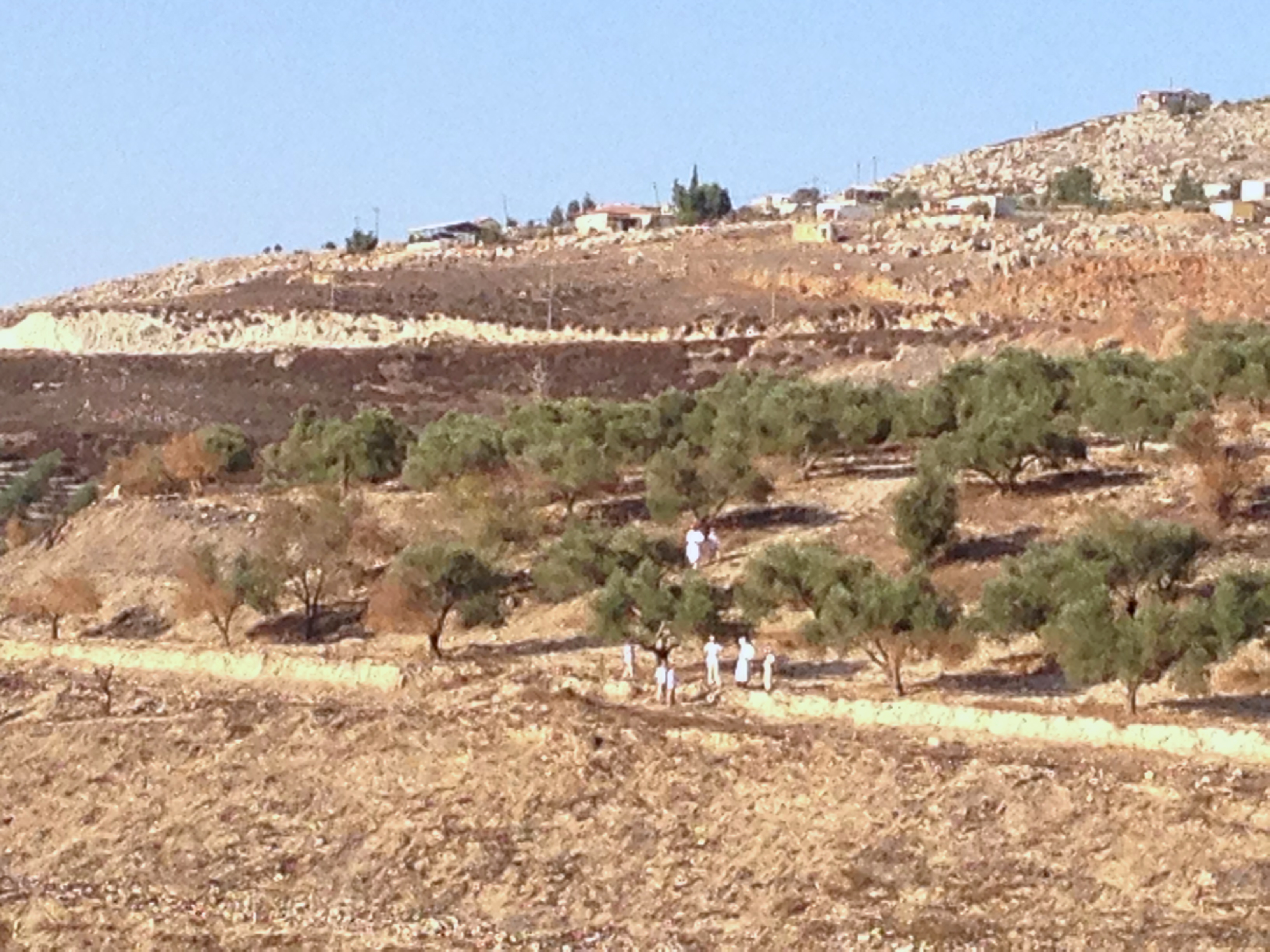Year: 2013
-
Illegal Israeli settlers attack Palestinian farmer attempting to harvest almonds
14th September 2013 | International Solidarity Movement, Nablus Team | Kafr Qalil, Occupied West Bank Late Friday night we received a call to accompany a farmer to harvest almonds early the following morning in Kafr Qalil, a village south of Nablus. This is a completely normal activity, harvesting crops when they are ripe and ready-to-pick;…
-
Three injured during weekly Bil’in demonstration
13th September 2013 | Friends of Freedom and Justice | Bil’in, Occupied Palestine Today, 09/13/2013, the weekly demonstration at Bil’in continued with protests in solidarity with the prisoners in Israel, against the illegal settlements and the apartheid wall. Three people were injured, Abdullah Ahmad Yassin (22), was shot with a tear gas canister in the head,…
-
Strong resistance in Kafr Qaddum despite Israeli army repression
13th September 2013 | International Solidarity Movement, Nablus Team | Kafr Qaddum, Occupied West Bank The residents of Kufr Qaddum held their weekly Friday demonstration despite increased repression by the Israeli army in the last two weeks. At approximately 10:00, more than 80 soldiers in nine military jeeps arrived in the village and positioned themselves…


